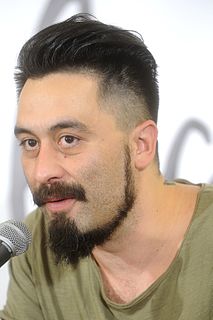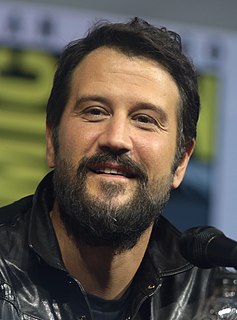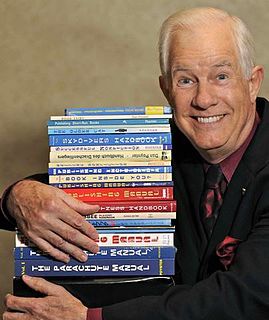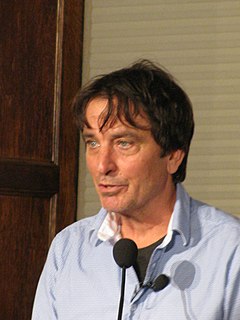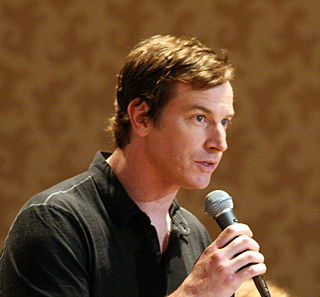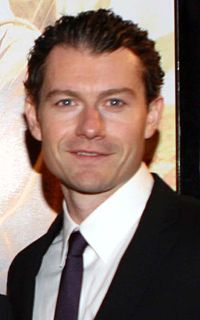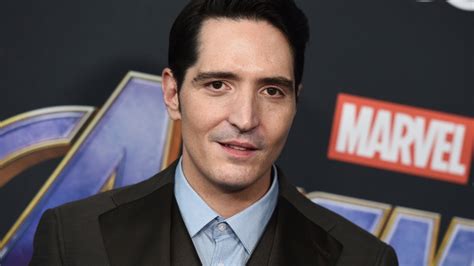A Quote by Marko Djurdjevic
I'm happy to entertain kids you know. It's my biggest pleasure to like see a twelve year old picking up a book that I did and dreaming about being a comic book artist. That's what the magic is, everything else is just production and a job.
Related Quotes
Run a test. Give a 5-year-old a printed book and an iPad and see what happens. That 5-year-old is going to go right for the iPad. They're not intimidated by it. They know what to do with it. They'll start searching around. And in a children's e-book, you can have links to kid-safe encyclopedia. So if they click on the lion, it takes them to Africa and tells them all about lions. So now, the e-book is educational.
Well, right now I'm not dead. But when I am, it's like...I don't know, I guess it's like being inside a book that nobody's reading. [...] An old one. It's up on a library shelf, so you're safe and everything, but the book hasn't been checked out for a long, long time. All you can do is wait. Just hope somebody'll pick it up and start reading.
'Axe Cop' is an animated show that just started on Fox that is based off the comic book series. And here's the hook: it's written by a 5-year-old. This 5-year-old has a brother who's, like, 28 and is in the business, and the little brother kept coming up with all these awesome stories for this character he dreamed up called Axe Cop.
I didn't know enough as a writer to understand why I needed to do this, but I understood in a very gut way that I could not entertain those thoughts of pleasing people and write this book - that it would be a very different book. Without really sort of investigating that instinct, which I'm glad for, I just made a conscious decision to put blinders on and not think about anything and put it all in. And I did. I put everything in. I had to look at the whole picture to see what I needed.
There's a great temptation to throw things in, as you put it, that you think are neat, or that you have a very clear, specific memory of and think you could do a good job writing about. What I find is that it's like a seed you plant. You can try it, and if it will grow and connect with other ideas in the book, and you can see connections that you can actually realize on the page, then you're allowed to leave it in. But if it just kind of lies there and doesn't really add up to anything or there's no chemistry with everything else going on in the book, then you have to take it out.
To me, my favorite comic book movies were the ones that were never based on comic books, like Unforgiven. That's more the kind of thing that get us inspired. Usually when you say something's a comic book movie, it means you turn on the purple and green lights. Suddenly that means it's more like a comic book, and It's not really like that.
For most people, what is so painful about reading is that you read something and you don't have anybody to share it with. In part what the book club opens up is that people can read a book and then have someone else to talk about it with. Then they see that a book can lead to the pleasure of conversation, that the solitary act of reading can actually be a part of the path to communion and community.
The first comic book I ever bought, I was in third grade. It was 'Avengers,' I think, #240. I grew up in Kansas City. And I walked into a 7-11. I had seen, like, 'The Hulk' TV series. I knew about comic book heroes. I knew about it, but I hadn't actually had a physical comic in my hands until that time. And it was a big deal for me.
